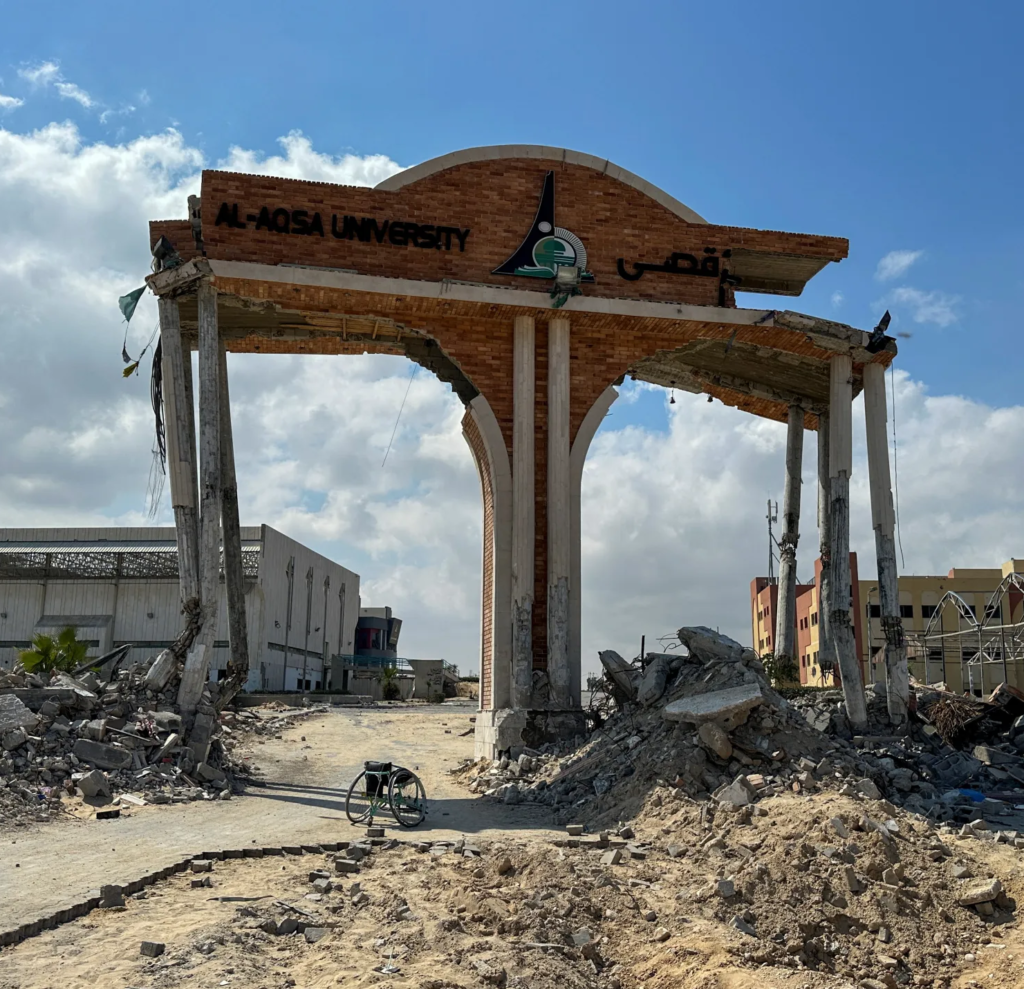Tuesday 4th June 2024
12:00 to 13:30 (UK time)
on Zoom: https://ucl.zoom.us/j/98535704018

Theatre of the Privileged Decolonial Cafe and SWANA Forum for Social Justice (both networks at the UCL IOE) are co-hosting a Special Event in the Decolonial Conversation Series this Tuesday 4th June at 12pm on Scholasticide: What is it and why should we care? We will use our 90 mins to think about terms like ‘scholasticide’ and ‘decolonisation and decoloniality’, and how these concepts relate to our work (teaching, learning, research and citizenship) at Higher Education Institutes in the global north. We have inspirational thinkers and speakers willing to share their insights into and experiences with these ideas in the current darkness in Palestine.
Speakers:
- Dr Yamila Hussein Shanna – a scholar, education, activist and public speaker dedicated to socio-economic and political justice. Her work focuses on examining matrices of oppression and liberation within the context of settler colonialism and anti-Black racism.
- We’am Hamadan – a Palestinian PhD candidate in Education at Cambridge University. Her research focuses on the intersection between education and technology, particularly exploring the transitional journeys of Information and Technology graduates from Higher Education to the labour market and from the labour market and or HE into TechHubs.
- Maya el-Helou – a course instructor in the Department of Anthropology at the University of Toronto. Her work involves making sense of everyday life, questioning normative time, and exploring revolutionary temporalities. Maya’s research interests intersect with critical perspectives on memory and identity, making her a valuable speaker on Scholasticide.
- Ramallah and Akka – two students from UCL Encampment that (today) is on its 30th day. They prefer to use pseudonyms for this event where they will speak to their enactment of decoloniality at UCL.
The aim of the Decolonial Conversation Series is to critically explore our ethical responsibilities towards communities facing the risk of genocides, epistemicides, ecocide and human-induced famine, all within the framework of ethical principles of epistemic justice, repair, restoration, restitution and reparation. Recognising our engagement in complex, interconnected historical and contemporary dynamics can inspire a fresh approach to our field (whichever it is) and help connect our academic work more meaningfully with the critical epistemic resistance on the ground.
